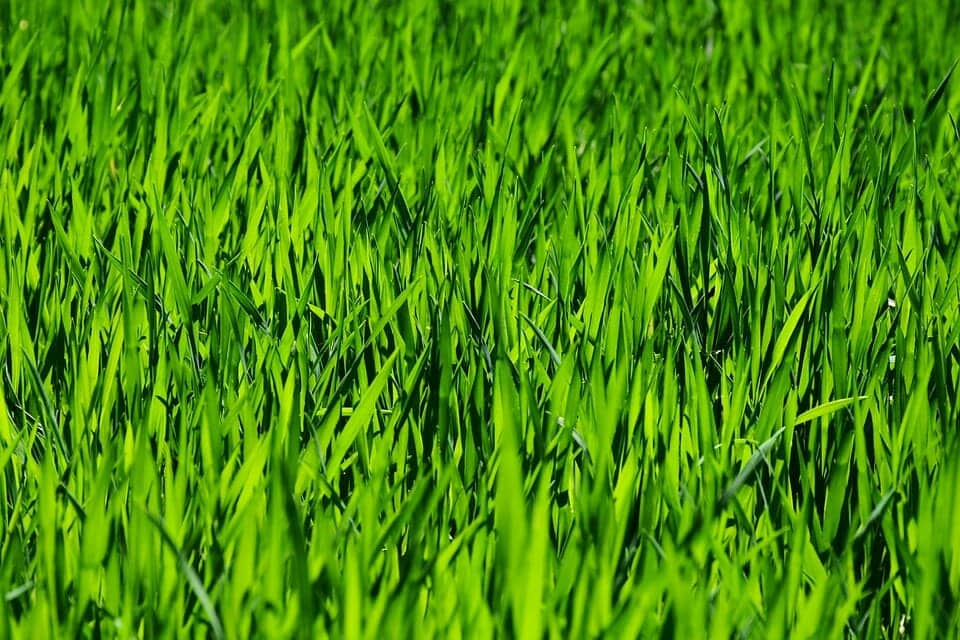Written by Admin and published on https://www.growgardener.com/
The best part of installing sod on your home lawn is being able to step back and look at it once the project is finished. You can see that all of the hard work, money, and dedication you or a team of professionals completed really pays off. After all, a gorgeous lawn can make your home really stand out. The next thought that often occurs to homeowners after a sod installation is, “what are the next steps in caring for my newly installed lawn?”. Post-installation care usually consists of when and how much to water a new lawn, when you can begin mowing it, and when to fertilize the new sod to help it establish and grow. You can read more about overall care after installation in How to Get Your Newly Sodded Lawn Off to a Healthy Start.
When to Fertilize New Sod? (Signs That Your Lawn is Craving Attention)
Want to make your lawn attractive and evergreen? Wondering when to fertilize new sod you just laid? Well, we have all the answers to all those worrisome questions in your head.
While we all agree that it is no easy task to maintain a lawn, timely use of fertilizers and watering will do wonders for it. So here we present some of our tried, tested, and successful tips on fertilizing new sod, and you can leave people guessing on how you got the most beautiful lawn in the whole locale.
As a passionate gardener, I would definitely agree that using sod is the best way to get a lush green lawn with less effort. However, proper care is what will make your lawn look like those in picture postcards. Besides, you will also be amazed at the fantastic therapeutic benefits your lush green garden can offer you.
Hence, I have put together this tutorial so that even the novice gardener you can create a picturesque landscape, at least you would not have to go through the many trial sessions as I did.
New Sod? Does the Novice Gardener Know What It Means?
Turfgrass, as it is known commonly, is a layer of already planted grass that comes with a thin layer of soil with the grassroots intact. These are grown commercially in farms that specialize in growing lawn grass, which is then sold as rectangular or square pieces. If you have larger areas to cover, it is ideal to use large rolls that come in a width of more than four feet.
Why Bother So Much About Timing While Laying Sod?
You will take more care when it comes to laying sod, firstly because of the cost, second the effort you have to put in to lay it. After so much effort and money, a forlorn lawn that resembles a haunted house from a horror flick is the last thing you want to see, so definitely find time to take care of the new sod whether you get time to take care of yourself or not.
Is There A Best Time and Season to Lay Sod?
If you ask me, I would say you can do it all around the growing season of the year. However, places that have extreme weather conditions will require you to plant them at the time when the temperature and humidity are at a desirable level. Spring season is the time most vegetation will flourish; this green grass is also no different. This season provides just the right amount of sunlight and humidity required for the new sod to establish its roots quickly.
If you happened to lazy around enjoying the spring in all its freshness and missed planting the new sod, you could do it in early autumn. Sod is known to thrive well in cold temperatures, so planting them at a time when the temperatures are low will help it grow quickly. Moderate rain after you have planted the new sod will give it all the essential nutrients and moisture required to transform the ordinary sod into a lush green lawn.
Summer would be the least preferred season to plant turf grass owing to high chances that the grass can dry out quickly. Even if you did happen to plant them in summer, watering it every day will help it withstand the dry weather conditions.
Planting grass can be an arduous task, so choose a day that is slightly cloudy or cool than a bright and sunny day to reduce the stress involved. Remember to moisten the soil before you plant the grass to make the task easier.
Getting to The Process
Hiring professionals to do the job can mean a lot more money in addition to the cost of buying the new sod. I am sure you would want to save that money; besides, planting the grass in your leisure time will give your body work out like benefits. Besides spending quality time indulging in your favorite pass time, you could also boast the lawn to be an asset of your own personal efforts.
Before we discuss fertilizing the lawn, let’s take a sneak peek at some of the steps involved in laying the sod. You could also watch the video on how to get your soil ready for the new sod.
- Prepare the soil by clearing the twigs, debris, and stones to make way for a smooth surface. If there are large lumps of soil, break it down to form smaller pieces. After you have cleared all the debris, you could further smoothen it up with a rake.
- You could also use some organic manure to improve the soil before you lay the sod so that the soil is nutritious enough for the grass to thrive. This will also ensure that you do not disturb the natural ecological balance in the soil. Consider investing in a sod roller to make way for more compact soil.
- Now you can start by laying the sod. Bring your family or friends to help you with this task, and I am sure you will cherish this family time forever. Doing it all by yourself can be time consuming and tiresome. You could lay the rectangular or square patterns, one below the other in a brick-like design. Keep a good spade or knife handy to cut out the unwanted or extra strips of the sod.
- After you have done laying the sod, you can use the sod roller to push it into the soil. You will have to water the fresh sod immediately after you have laid it. For the next two weeks, water, it once every day until you see the roots getting set in the soil.
Now It Is About Time to Decide on Fertilizing the New Sod
Fertilizing is the tricky part when it comes to laying sod, and it depends on when you laid the sod and the type of grass. Once you have laid the sod in spring, you could consider fertilizing it close to the end of the spring season. So that means you should fertilize the new sod at about four or six weeks after you have laid the new sod. The ideal waiting time is about one month after you have laid the sod even if you do it in any other season. People usually avoid fertilizing the lawns in October. You could use a good quality turf fertilizer for vigorous root and seedling development.
Original post here https://www.growgardener.com/when-to-fertilize-new-sod/.



